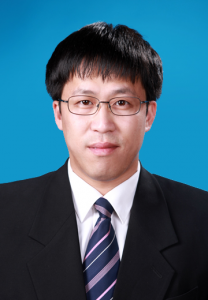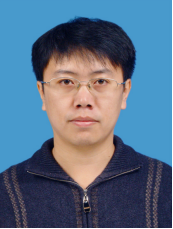
Professor Cesar Briso
Affiliation: Technical University of Madrid
Title: A Connected Sky: 6G communications for UAVs
Abstract:
The integration of UAVs into unify international air space requires the use of advanced communications with high-mobility communication platforms to provide line-of-sight links and further assist the terrestrial communications. 6G aims to provide ubiquitous wireless connectivity for the whole world. However, the demands for high-quality and ubiquitous wireless services impose enormous challenges to existing cellular networks. Unmanned aerial vehicles (UAVs), due to their agile maneuverability, can be dispatched as high-mobility aerial communication platforms to provide high quality links and further assist the terrestrial communications in 6G.Hence, integrating UAVs into 6G networks is a promising solution to achieve such goals. 6G calls for a paradigm on the design of both cellular and UAV communications systems due to the high altitude and mobility of UAVs, the unique channel characteristics of UAV-ground links; the asymmetric quality of downlink and uplink data transmission; weight and power limitations of UAVs; as well as the intra-system and inter-system interference of the integrated networks. In order to provide users with smooth service experience and improve the resource utilization of integrated UAVs and 6G networks.
Bio:
Cesar Briso is full professor and director of the Radiocommunications Group at the Technical University of Madrid, SPAIN. He has a 30 -year research trajectory, initially focused on the study and design of circuits and systems of high frequency and radar, and in the last 20 years he has focused on the design and development of wireless communications for transportation systems, especially focused on high speed trains, metropolitan railways and Unmanned aerial Vehicles. On 2010 he started working on wideband channel critical communications using 5G. On this topic he has done relevant research on the last years, making several scientific publications and collaborations with international experts of Europe, China and USA. He has managed 23 national and international research projects and hold two patents on critical communications for transportation systems. Now he is working on the project: “Next Generation Train Communications Systems”, inside the Chinese program “The Belt and the Road”. He is also author of 40 journal papers and has participated on more than 60 international congresses. He has been editor of 6 Special Issue and 2 books on wireless communications for transportation. He has received 4 National prizes for his research.
Professor Yong Wang
Affiliation: Harbin Institute of Technology
Title: Inverse synthetic aperture radar imaging of target with
complex motions
Abstract:
Inverse synthetic aperture radar (ISAR) imaging of target with complex motion is very important and difficult in the field of radar imaging, and it has great value in practice. For the target with complex motion, the rotational velocity and rotational axis are time varying, and this will induce the time varying character for the Doppler frequency of the received signal. Thus, the traditional radar imaging algorithm will be inappropriate in this case, and the corresponding radar images will be blurred severely and can not be recognized correctely. Then, the received signal can be characterized as multi-component polynomial phase signal (PPS) for the target with complex motion, and the time frequency analysis for the PPS should be implemented to improve the radar image quality. This report will introduce three kinds of methods, including the parameters estimation, the time frequency representation and the signal decomposition technique for the treatment of multi-component PPS, and combined with the range instantaneous Doppler (RID) technique, the radar image quality can be improved significantly for the target with complex motion.
Bio:
Dr. Yong Wang is currently a professor with the institute of electronic engineering technology in Harbin Institute of Technology (HIT). His main research interests are in the fields of time frequency analysis of nonstationary signal, radar signal processing, and their application in synthetic aperture radar (SAR) imaging. Dr. Yong Wang has published more than 170 papers, and most of them appeared in the journals of IEEE Trans. On GRS, IET Signal Processing, Signal Processing, etc. He received the National Science Fund for Distinguished Young Scholars in 2023, and the National Natural Science Foundation for Outstanding Young Scholars in 2016, and received the Program for New Century Excellent Talents in University of Ministry of Education of China in 2012, and the Excellent Doctor’s Degree nomination Award in China in 2010. He has been selected as the editorial boards for some famous journals, such as the 《Acta Electronica Sinica》, and he is also selected as the IET Fellow.

Professor Yun Lin
Affiliation: Harbin Engineering University
Title: Application of RF Fingerprint Technology in Mobile Communication
Abstract:
With the rapid deployment of 5GNR, the mobile communication network has been greatly developed and expanded, and the security problems hidden in it have become more and more significant. Compared with traditional security technology, radio frequency fingerprint identification technology can provide reliable physical layer security protection, and has strong application value in the future 5G, even 6G.This report will introduce the security issues in 5G system, as well as the background and development process of RF fingerprint technology, share the relevant achievements of the research group in solving the security problems of wireless communication physical layer by using RF fingerprint, and look forward to the future development trend of RF fingerprint technology.


